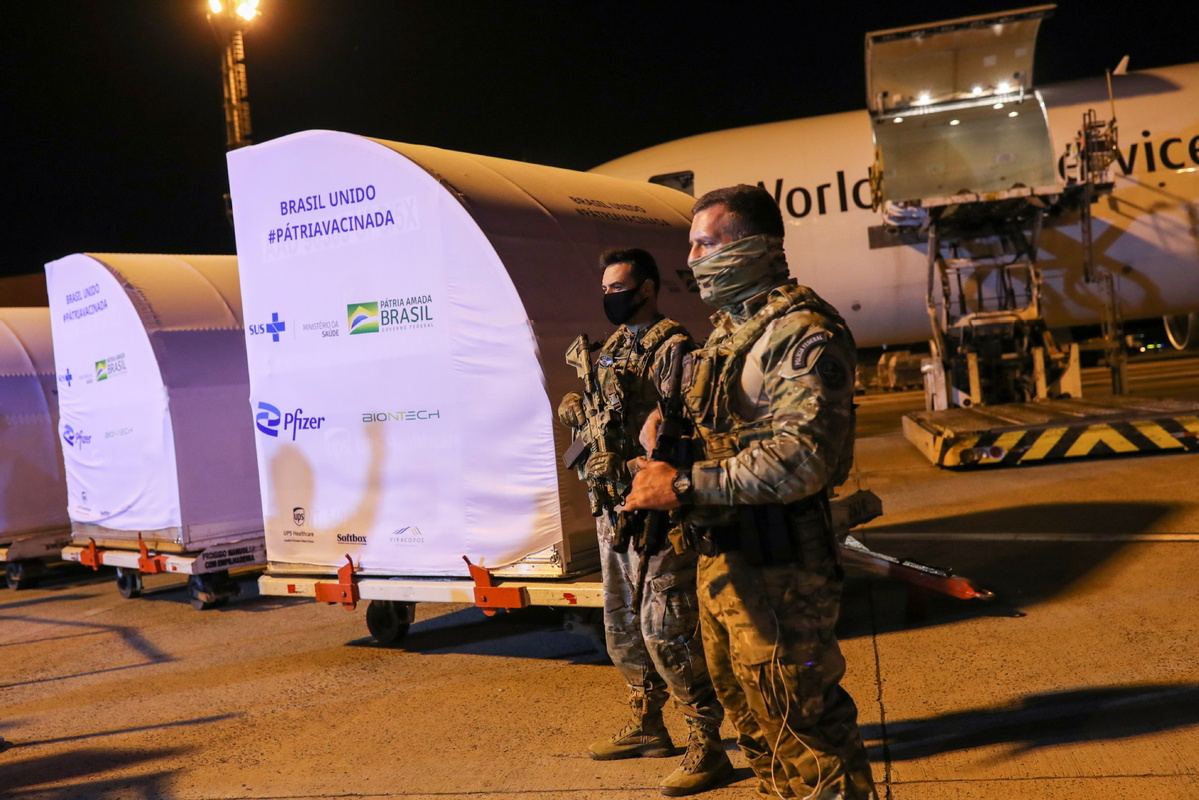Hoarding blamed for gulf in access to jabs


Stockpiles in rich nations, along with patent protection, mean most miss out
Developing countries are struggling with a shortage of coronavirus vaccines, with the hoarding of supplies and the protection of intellectual property in affluent nations two reasons why.
The causes vary globally, but the major factors are the national hoarding of doses, raw materials and technical expertise; patents and liability protection by pharmaceutical companies that prevent countries from sharing vaccines; and the locking up of vaccine production by the world's wealthiest countries.
Drug companies that developed and won authorization for the vaccines in record time have agreed to sell most of the first doses off production lines to the United States, European countries and a few other wealthy nations.
Tedros Adhanom Ghebreyesus, the director-general of the World Health Organization, has described the situation as "another brick in the wall of inequality between the world's haves and have-nots".
"It's outrageous ethically, morally, scientifically," Maria Van Kerkhove, a public health researcher with the WHO, told The Washington Post about the global vaccine inequities.
The health agency will soon decide whether to give emergency approval for China's two main COVID-19 vaccines, WHO Assistant Director-General Mariangela Batista Galvao Simao said on Monday.
If the WHO grants emergency use authorization for the two Chinese vaccines, it will be a boost for the COVID-19 Vaccines Global Access, or COVAX, program and give the green light to some developed countries anxiously awaiting the endorsement so they can import the Chinese vaccines.
WHO approval should be a formality as the Chinese vaccines' safety and efficacy have been tested and proven. More than 200 million Chinese vaccine doses have been administered domestically and 100 million in foreign countries, particularly in Latin America, Asia and Africa.
'Vaccine nationalism'
So-called vaccine nationalism also is said to be hindering the flow of doses to poorer nations through COVAX. The program is jointly run by Gavi, the Vaccine Alliance, the WHO and the Coalition for Epidemic Preparedness Innovations and is an effort to pool resources to develop and equitably distribute vaccines to 92 low-and middle-income countries this year.
India, which is the world's largest vaccine producer-mostly producing the AstraZeneca formula-has sold and gifted tens of millions of doses to other countries as part of COVAX. But it has largely stopped exporting due to its own surge in cases.
COVAX had expected 71 percent of its initial doses to come from India's Serum Institute, the country's largest vaccine maker, dealing a major setback to the rollout.
The gulf in vaccine access has spurred calls to waive intellectual property protections.
Columbia University Professor Joseph Stiglitz, along with Lori Wallach, the director of Public Citizen's Global Trade Watch, argued in an opinion article in The Washington Post on Monday that "preserving intellectual property barriers to COVID-19 vaccines is morally wrong and foolish".
They wrote that "waiving intellectual property rights so developing countries could produce more vaccines would make a big difference in reaching global herd immunity".
Three-quarters of the world's vaccine doses have been administered in just 10 nations, which together account for under half the world's population.
"At the current rate vaccines are being administered, 92 of the world's poorest countries won't vaccinate 60 percent of their populations until 2023 or later," wrote Krishna Udayakumar and Mark McClellan, health experts at Duke University.
The low rate of vaccination globally makes it harder to reach herd immunity, in which a sufficient percentage of the population is inoculated, making it much more difficult for the virus to mutate. But if the mutations prove resistant to vaccines, they could spread anywhere in the world, including in Western countries that have been vaccinated first.
India, where barely 1 percent of the population has been vaccinated, is battling the world's fastest pace of spreading coronavirus infections.
With 379,257 new infections, India now has reported more than 18.3 million cases, second only to the United States. The Health Ministry also reported 3,645 deaths in the last 24 hours, bringing the total to 204,832.
Agencies contributed to this story.
































